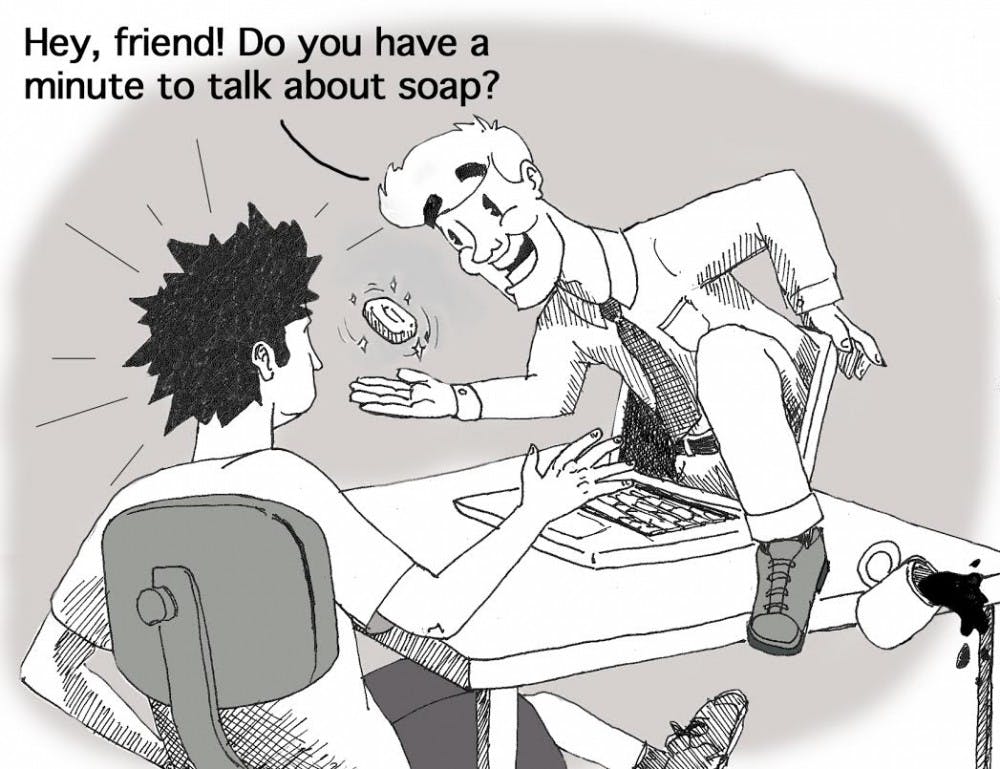It’s no secret that manipulating someone’s insecurities is the most effective way to sell that individual a product: convince them there’s something missing in their lives that could be mended by purchasing your item, and you’re in business.
Dove’s #SpeakBeautiful campaign has taken that psychology to a new, more convoluted level by masquerading as the champions of “real beauty,” a trope they’ve employed as a catchphrase in many an advertising ?initiative.
This time, instead of simply claiming to believe in the value of natural beauty — the definition and conception of which is problematic in itself — Dove has teamed with Twitter to scour social media for women tweeting negatively about their appearances and respond with an encouraging message with the tag #SpeakBeautiful.
Firstly, to reprimand women for the way they talk about themselves is to police them. It’s inherently oppressive, and it’s also just none of Dove’s business.
One thread on their account occurred between two women discussing one’s decision to dye her hair black. Dove responded to this woman’s comment that she “hate(s) her hair” with “Change is always fun, but we think your hair looks gorgeous as it is. #SpeakBeautiful.”
Receiving tweets like this from a distant anonymous company feels a lot like the electronic version of conducting such a conversation on the sidewalk, with a stranger pulling up in their car and shouting “Quit that! You’re gorgeous! Speak beautiful!” and driving away.
We’d be annoyed and uncomfortable if Dove did that outside of cyberspace, so why do we tolerate it at all?
Shining a spotlight on women who harbor insecurities about their appearance for the sake of selling another bottle of lotion is immoral, aggressive and just gross. It also has absolutely nothing to do with making people feel better about themselves and has everything to do with making them feel worse — for profit.
Secondly, and most disturbingly, is examining this campaign as a reminder that data mining on social media is not only legal, but prevalent. Dove has every right to create an algorithm that searches the Internet for key words and phrases that designate an account holder with a negative body image. As soon as that target is identified, Dove is advertising directly to the individual by tweeting a personally designed message as a reminder to buy Dove products because it cares about your mental health enough to do so.
By tweeting at you personally, Dove is forever associating your account with its own and platforming you as a ?customer by its choice, not yours.
Dove is a for-profit corporation on the most fundamental level; it exists to make money. Not to combat women’s issues, not to encourage women to love themselves — to make money. Its brother company is Axe body spray, which regularly utilizes images of sexualized women as props and a heavily distorted image of hyper-masculinity to sell cologne.
This is the reality of our current social-electronic landscape: Dove is not alone. Most companies are utilizing our obsession with social media every second of every day to convince us that we cannot be happy without its products.
The favor Dove has done for us with its incredibly invasive, misguided campaign is remind us that we are never alone online: No one speaks into a vacuum, no matter how many or few the followers. The first step to a healthy sense of self is awareness, and #SpeakBeautiful has drawn our attention to what it means to be people in 2015 constantly bombarded by corporations who seek to exploit our insecurity.
By our own agency, not a sleekly-designed bottle of moisturizer, perhaps we can begin to fill in these cracks ourselves to protect against future siege, from within and without.
Now that’s beautiful.




